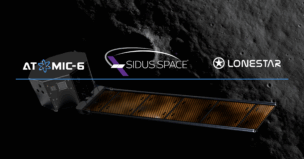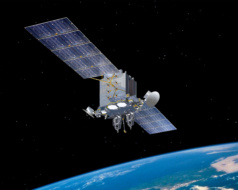When the US talks to China, China never talks back, according to a senior DoD official.
Lt. Gen. John Shaw, the second in command at US Space Command, said there are “a couple” Chinese email addresses registered with the government’s space-track.org site, which alerts operators about potential collisions in orbit, giving them an opportunity to move their spacecraft.
“When there are conjunctions with Chinese platforms, we send an email. We never get a response,” Shaw said on the second day of the Secure World Foundation’s Summit for Space Sustainability. “As they progress further into the domain, we need to talk.”
Shaw pointed to the Syrian Deconfliction Line—an open line of communication with Moscow during the war in Syria to coordinate and avoid any miscalculations—as evidence that countries who don’t always get along can still communicate in the interest of safety.
Hopes deleted: But Shaw also raised issues with Russia’s actions in space, specifically with the destructive ASAT test it conducted in November 2021 that created 1,500+ pieces of trackable debris. Shaw said that he had information suggesting that the ASAT test was coming, but that because Russia views itself as the senior spacefaring nation, he hoped it would be an offset test, where operators purposely miss their target to avoid the creation of debris.
“I was wrong. I’m sad that I was wrong,” Shaw said. “They didn’t need to. They could have done an offset test….They could’ve and they didn’t.
Traffic jam: Coordination and responsible action in space becomes even more important as the volume of traffic and number of actors ticks up, something Shaw said he is already seeing.
“If that first space age was like the Arctic Ocean—mostly national security, scientific, not a lot of traffic—the Earth-Moon system of today is like the Mediterranean. There’s just so much going on,” he said.




